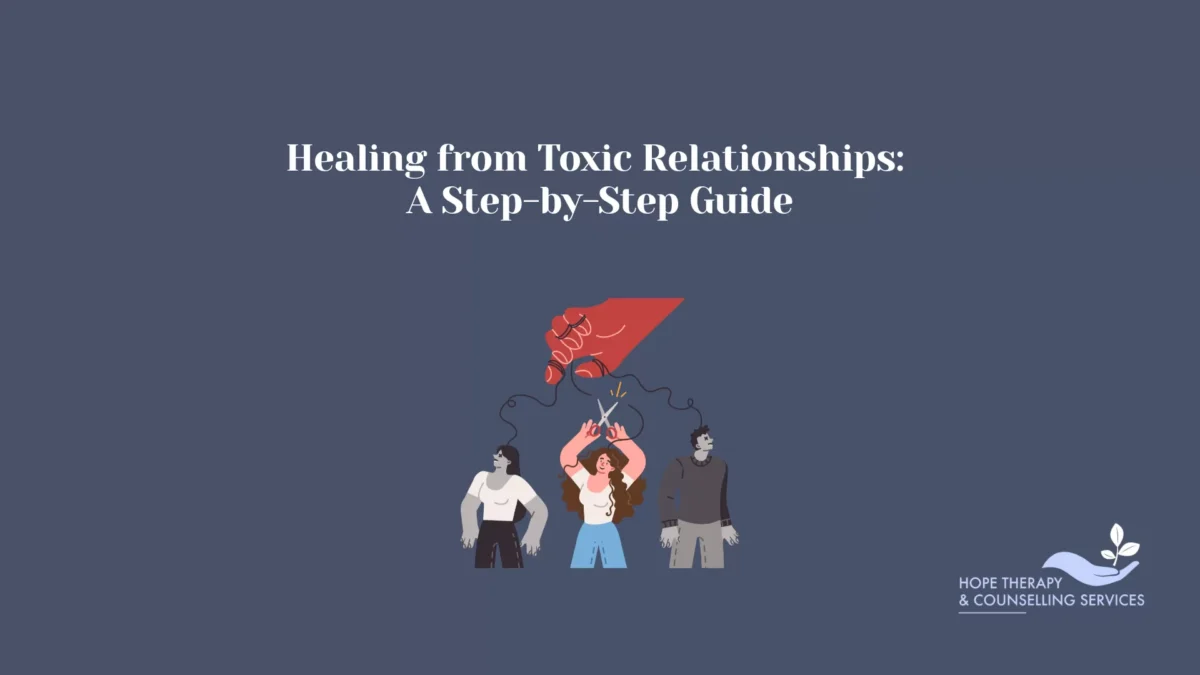Toxic relationships can leave deep emotional scars. Whether you’ve lived through emotional manipulation, narcissistic abuse, or chronic disrespect, the aftermath can feel like a maze of confusion, grief, and self-doubt. But healing is not only possible — it’s your right. This step-by-step guide is designed to help you rebuild your sense of self, reconnect with your needs, and move forward with intention and hope.
Step 1: Recognise the Relationship Was Toxic
Healing begins with honest acknowledgement. Many people minimise their experiences, especially if the relationship involved gaslighting or long-term emotional manipulation.
Key signs the relationship was toxic:
- You often felt anxious, drained, or “not good enough”
- Your boundaries were consistently ignored
- There was a cycle of highs and lows (love-bombing followed by criticism or withdrawal)
- You lost touch with your own needs and identity
You don’t need dramatic proof to validate your pain. If your nervous system felt unsafe, that’s enough.
Step 2: Allow Space for Grief
Even if the relationship was harmful, it’s normal to grieve the good moments or the future you hoped for. Grief is not a sign that leaving was wrong — it’s part of processing what was lost.
Let yourself feel:
- Sadness
- Anger
- Confusion
- Even nostalgia
Avoid shaming yourself for missing someone who hurt you. Emotional attachments don’t always make logical sense.
Step 3: Set Clear, Firm Boundaries
Toxic relationships often leave us unsure where our limits are. Now is the time to rediscover them.
Boundaries may include:
- Going no-contact or low-contact
- Blocking them on social media
- Asking mutual friends for space
- Avoiding places where you might bump into them while you’re healing
Boundaries aren’t punishment — they’re protection.
Step 4: Rebuild Self-Worth and Identity
Toxic dynamics often chip away at your self-esteem. You may have been told your needs were “too much” or that you were to blame for their behaviour. This step is about reclaiming your inner compass.
Ways to rebuild your sense of self:
- Journalling your values and what matters to you
- Naming your strengths and what you’ve survived
- Speaking to a counsellor about how the relationship affected your self-image
- Practising self-compassion when shame arises
You are not who they said you were.
Step 5: Learn Healthy Relationship Patterns
Many people leave toxic relationships unsure what healthy even looks like. This is a good time to explore that.
Healthy relationships are grounded in:
- Mutual respect
- Clear communication
- Emotional safety
- Shared responsibility
Reading books, watching videos, or attending counselling can help you re-learn what to expect from love.
Step 6: Get Counselling Support
You don’t need to heal alone. Speaking to a qualified counsellor can help you unpack the emotional aftermath, recognise lingering patterns, and develop tools for future connection.
At Hope Therapy & Counselling Services, we support individuals recovering from toxic relationships through both online and face-to-face counselling. Our team understands how complex these experiences can be, and we offer a warm, judgment-free space to begin again.
You can access a free consultation with our counselling team today.
Step 7: Reconnect With Joy and Meaning
Healing isn’t just about avoiding harm — it’s about reclaiming your right to joy, peace, and fulfilment. Explore the parts of life that light you up.
Ask yourself:
- What hobbies have I missed?
- Who makes me feel safe?
- Where do I feel most myself?
- What does my life look like without survival mode?
Healing is about thriving, not just surviving.
Frequently Asked Questions
How long does it take to heal from a toxic relationship?
There’s no set timeline. Some people start to feel more themselves after a few months, while others take years. Counselling can speed up recovery by helping you process and make meaning.
What if I still love the person who hurt me?
Love doesn’t always disappear right away. Acknowledging that truth doesn’t mean you should go back. With time and support, the emotional hold they have on you will fade.
Can counselling help even if I’m no longer in the relationship?
Absolutely. Many people don’t realise the lasting impact until they’ve left. Counselling helps you unpack the experience and understand the patterns you want to change.
Ready to Take the First Step?
If you’re navigating the emotional aftermath of a toxic relationship, you’re not alone. At Hope Therapy, we offer supportive, non-judgmental counselling to help you recover, rebuild, and rediscover your self-worth.
Book your free consultation today →
Hope Therapy & Counselling Services provides both online and in-person sessions across the UK. All counsellors are fully qualified, trauma-informed, and passionate about your healing.

